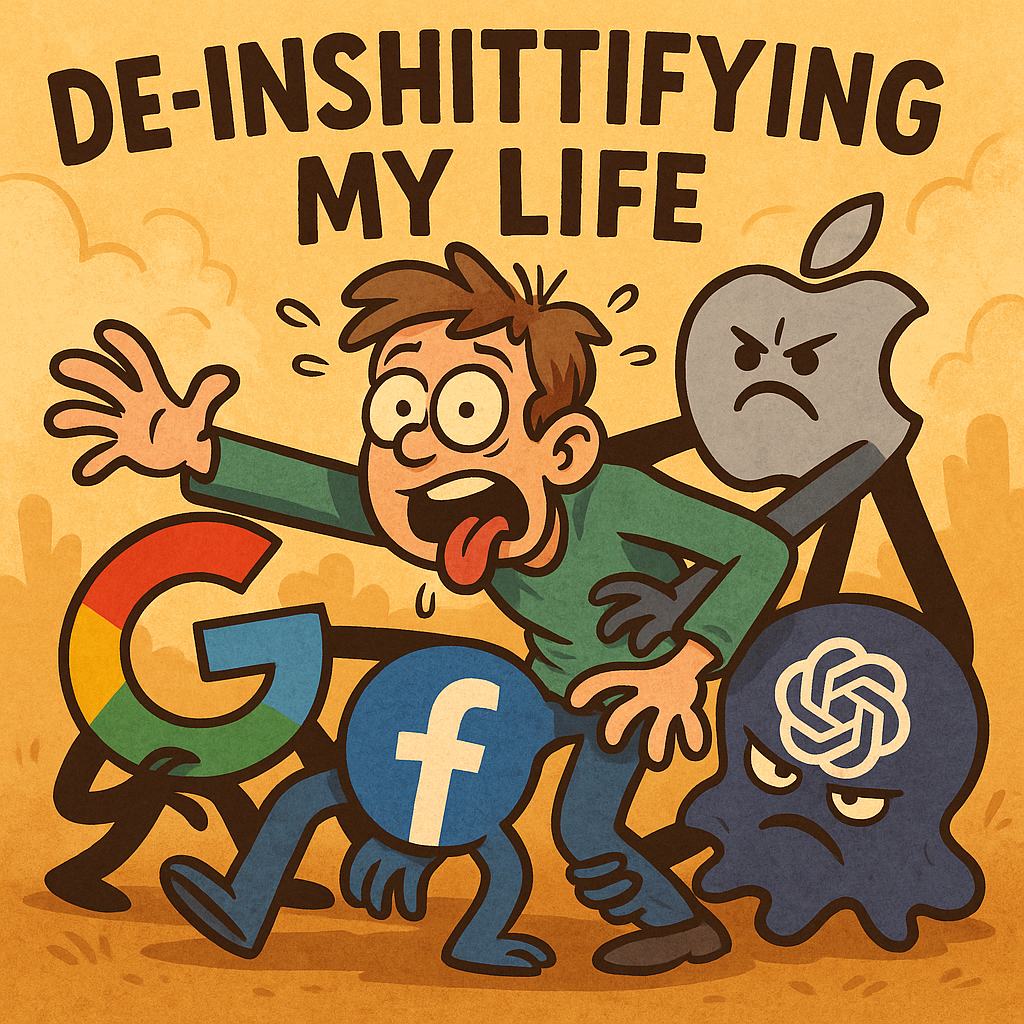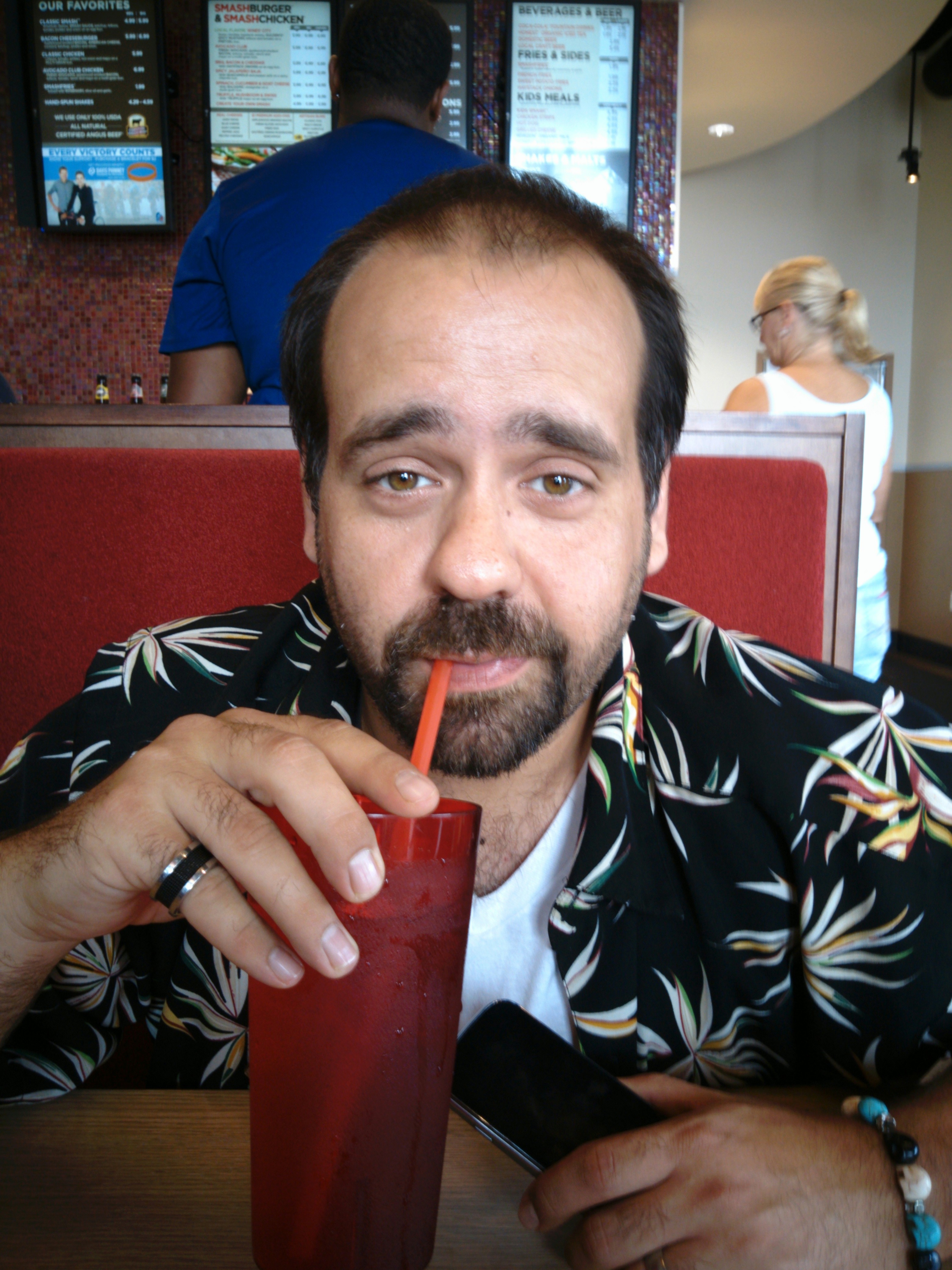
De-Inshittifying My Life (Or Trying, Anyway)
📰 Cory Doctorow's "The Internet Con" is a must-read. He coined a term so on-point I want to tattoo it on the back of my phone (or whatever replaces phones in our eventual post-inshittified utopia): enshittification. It's the process by which tech platforms, driven by profit-hungry incentives, get worse for users over time—slowly, then all at once.
Doctorow’s insight? Platforms start off nice to users. Then they tilt toward vendors. Then they sell both sides out to maximize rent extraction. Welcome to the Sludge Economy™️.
But wait—it gets worse! Enter stage left: Technofeudalism by Yanis Varoufakis. He argues we’ve leapfrogged late capitalism and landed face-first into a shiny dystopia where Big Tech doesn’t just exploit labor—it owns the digital fiefdom outright. Not a market, but a command economy. Algorithmic landlords, data peasant tenants. Feels accurate.
So here I am—Zac Fosdyck, digital native, FLOSS nerd, occasional heretic—trying to de-inshittify my life. Spoiler: It’s hard as hell.
Surveillance Is a Feature, Not a Bug
I’ve spent years building tech skills, advocating for user freedom, and nerding out on the beauty of self-hosted tools. But if I’m being real? I’m still up to my eyeballs in Google, Apple, Facebook—and now, even OpenAI has me typing my soul into a black box.
🤪 Irony level: Ultra.
There’s something darkly poetic about using ChatGPT to write a post about escaping digital serfdom. Like asking your captor to draft your escape plan. (“Sure thing! Would you like that in Markdown?”)
Extraction, Everywhere
Pulling your data—and by extension, your life—out of these systems isn’t just difficult. It’s damn near impossible. Try deleting a Google account without accidentally nuking your photos, email history, Android access, or your entire workflow. It's like pulling out a single Lego from a Death Star.
We’re so embedded in the convenience matrix that opting out feels like social isolation. Don't use Google Maps? Good luck getting anywhere. No smartphone? You might as well be invisible. Don’t use Facebook? Then how do you RSVP to Aunt Cheryl’s dog’s retirement party?
Resistance Is Possible (But Not Pretty)
Recently, I took the first clumsy steps toward digital disentanglement. I stood at the edge of my digital swamp, ready to drain it—and fell straight into a bog of OAuth logins, backup conflicts, and “Why is this app suddenly broken?”
Turns out: The system is not designed to let you go. It’s clingy. It’s jealous. It wants you to keep feeding it clicks, likes, data, and your precious time.
But I’m not giving up.
What’s Next?
I’m charting a path toward:
FLOSS tools over proprietary traps
Decentralized networks over centralized choke points
Community and cooperation over convenience and control
This blog is part of that journey. Not because I’ve figured it all out—but because I haven’t. I’m still tangled in the vines, just now realizing the scale of the jungle.
So consider this post a flag planted in the digital ground—a declaration that even if I use the machine, I’m not here to serve it.
More posts to come on what I’m trying, what fails hilariously, and what actually works. If you’re also trying to escape the algorithmic Borg cube—stick around.
🌀 De-inshittification or bust.
—Zac Fosdyck
Regenerative IT / Cyber Resilience
zackhacks.xyz
me@zackhacks.xyz
